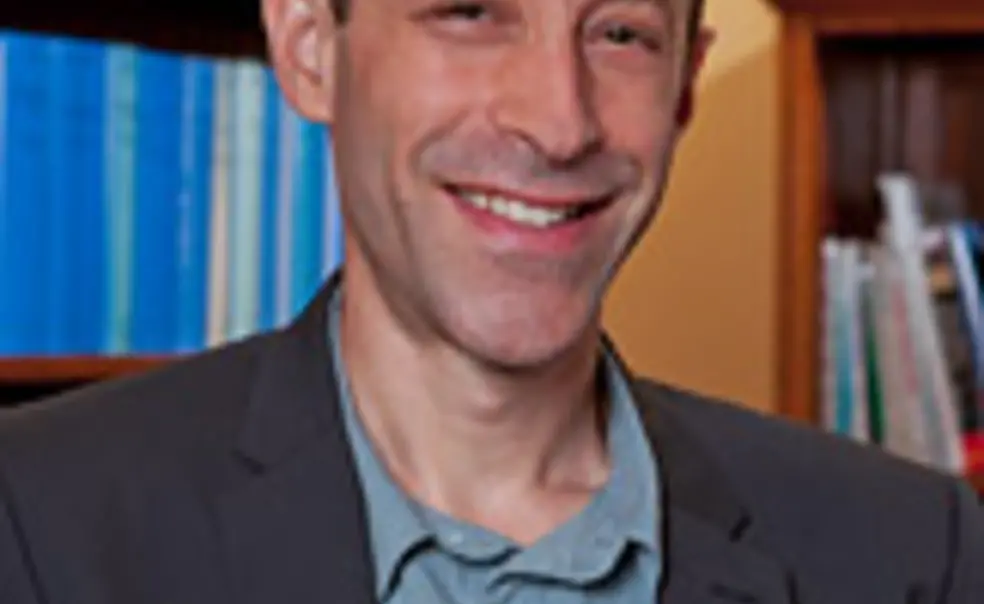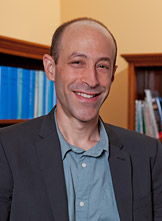New religious life associate dean Weiner has interfaith focus
Matthew Weiner is in his first year as Princeton’s associate dean of religious life. (Photo: Denise Applewhite/ Office of Communications)
Matthew Weiner, Princeton’s new associate dean of religious life, takes a broad view of his job. A practicing Buddhist, he is reaching out to all students — not just those who observe religious practices — as part of his interfaith community.
“I understand interfaith to be both religious and secular communities,” he says. “A key goal of mine is making a case to secular students and [University] departments that understanding and partnering with religion is important.”
Weiner, an interfaith organizer for more than 20 years, noted that Princeton has been a leader in interfaith relations and could become a national model for developing interfaith leaders. To that end, he has already used the skills he culled during his nine years at the Interfaith Center of New York, a “totally grassroots” organization where, as program director, he developed a network of 500 religious leaders who focused on social change by addressing issues of domestic violence, hate crimes, and environmental justice.
The interfaith work of the Office of Religious Life (ORL) was, Weiner said, “already rich” when he arrived on campus Sept. 1, succeeding associate dean Paul Raushenbush. Weiner is trying to initiate new programming in places “where the role of religion is important, but people don’t know it is.”
Already he has run a program on incarceration, which featured two chaplains from maximum-security prisons; another on domestic violence that included members of SHARE (the Sexual Harassment/Assault Advising/Resources and Education office); and another presented by UNICEF’s religion officer. This spring, the ORL conducted an interfaith community-service project in Trenton and continued its ongoing religious-literacy program with UNICEF.
“In all of these [programs], I try to draw religious diversity together around shared concerns,” he said. “Students who attend ORL programs may not be interested in religion, for example, but they are interested in issues of incarceration or intimate-partner violence, and religion plays an important role in understanding and addressing these issues.”
Weiner also hopes to bring together students of different beliefs for community service, in which ORL partners with the Student Volunteer Council (SVC). “We noticed that Muslim, Hindu, Sikh, and Christian groups perform community service, but if they do it together, they learn from one another, and others learn that religious groups can work together,” he said. “They become a model for good religious citizenship.”
Though he earned a doctorate in theology and a master’s degree in theological studies, Weiner was never ordained. Raised Jewish, he has practiced Buddhism for 25 years and facilitates a weekly meditation in Murray-Dodge attended by about 25 students and staff.













No responses yet